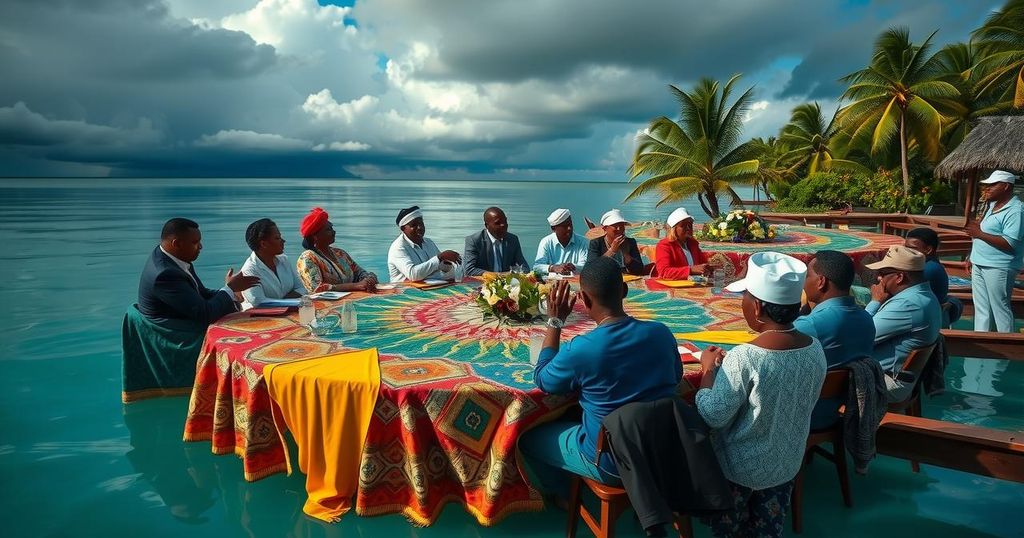The Commonwealth Summit in Samoa, led by King Charles, prioritizes discussions on climate change and slavery reparations. Tuvalu’s climate change minister calls for adherence to the Paris Accord, while CARICOM leaders push for reparations dialogue, despite UK Prime Minister Keir Starmer’s reluctance to address the latter. The summit aims to reinforce collaboration between member states on these pressing issues.
The Commonwealth Heads of Government Meeting (CHOGM) convened in Samoa, focusing on crucial topics such as climate change and reparations for transatlantic slavery. King Charles, representing the Commonwealth, joined leaders from 56 nations, many of which are vulnerable small island states facing existential threats from rising sea levels. During the summit, Tuvalu’s climate change minister emphasized the urgency of adhering to the Paris Accord’s target of limiting global warming to 1.5 degrees Celsius, characterizing new fossil fuel initiatives as detrimental to his nation’s future. He urged wealthier Commonwealth nations to support these efforts rather than exacerbate the climate crisis. Australian Foreign Minister Penny Wong remarked on the severe implications of climate change, labeling it the primary national security and economic threat for Pacific nations. In this context, leaders are expected to issue a declaration focused on ocean protection, a key issue during the summit. Additionally, discussions regarding reparations for slavery emerged, with strong advocacy from Caribbean nations and the African Union. British Prime Minister Keir Starmer maintained that the UK would not formally address the issue of reparations at the summit, although he was open to dialogue with leaders interested in this matter. Notably, sources from CARICOM pointed out the summit as a pivotal opportunity for reparations discussions. Eric Phillips from CARICOM’s reparations commission illustrated frustrations with the UK’s current stance, emphasizing the necessity of an open dialogue on historical injustices. Meanwhile, the historical context of the transatlantic slave trade, which forcibly uprooted an estimated 12.5 million Africans who endured heinous conditions, continues to fuel the debate around reparations. Advocates argue that the legacy of slavery has perpetuated deep-rooted racial inequalities that require redress. Overall, CHOGM in Samoa marks a significant platform for addressing pressing global challenges, with climate change and the issues surrounding historical reparations taking center stage.
The Commonwealth is an intergovernmental organization comprised mainly of former territories of the British Empire. It convenes regularly to discuss global issues affecting member states, particularly those relating to climate change and historical injustices such as transatlantic slavery. The current summit in Samoa represents an opportunity for leaders to tackle the urgent implications of climate change on vulnerable island nations and to address rising calls for reparations associated with Britain’s colonial past.
The Commonwealth Summit in Samoa highlights the urgent need for collective action on climate change and the implications of historical injustices such as slavery. With island nations facing dire threats from climate change, leaders are urged to align with critical global warming targets. Concurrently, the dialogue on reparations continues to provoke discussion, positing a need for recognition and action surrounding the legacies of colonialism. The outcomes of this summit may set a precedent for future Commonwealth engagements and global climate policy.
Original Source: stratnewsglobal.com







